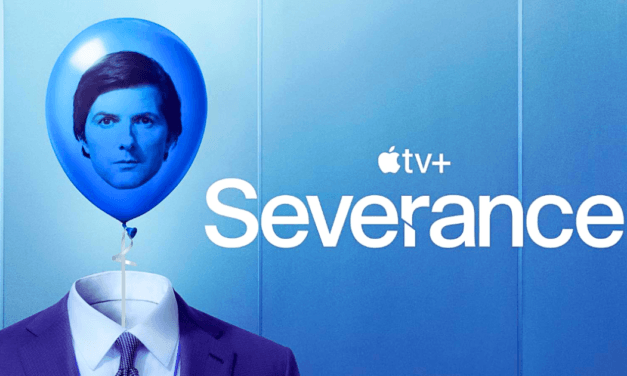This article first appeared in the Christian Research Journal, volume 44, number 2 (2021). For further information or to subscribe to the Christian Research Journal please click here.
SYNOPSIS
Of the legion of ways that we, since the dawn of time, have devised to deceive ourselves and others, the insidious cruelty at the heart of the phenomenon called gaslighting is one of the most fascinating and destructive. Derived from the play Gas Light (1938), the expression is visceral, referring to the deliberate attempt by the villain to drive the heroine insane. Gaslighting is a useful umbrella trope for understanding many different kinds of damaging online behavior. Gatekeeping, tone policing, outright lying, and the demand to “do better” all constrain members of online communities through fear rather than love. Whether in private groups or in public threads, hapless and naïve Christians fall prey to intentional and unintentional gaslighting and often turn to gaslighting themselves when they fail to make themselves understood. The whining, crazed rage of the heroine in the 1940 film Gaslight, adapted from the play, well reflects the tenor and feelings of many people when they encounter the toxicity of social media.
They know something is wrong, they feel themselves going mad, but they are powerless to tell the truth, or even to trust their own perceptions.
Only by a renewed embrace of the objectivity of Scripture married to a biblical definition of love can Christians return to the sober reasoning of honest discourse. Where ideology clouds the perception of truth, Christians can measure everything by the light of Christ in the Scriptures. They need have no changeable orthodoxy, nor grasping appeals to gatekeeping, tone policing, or gaslighting. Rather, they might recapture the lost virtues of debate and a life-giving search for truth.
“Knife? What knife? Are you suggesting this is a knife
I have in my hand? Have you gone mad, my sane
husband?….You made me mad. Witless as an animal you
said. Now you’re helpless and I’m mad.”1
Bella, in the 1940 film Gaslight, holds a knife over the head of her tormentor, Paul, in a just and satisfying reprisal. This haunting denouement is a fitting illustration of one of the most prescient and versatile tropes of the past two decades. I have used the term “gaslight” with abandon as I’ve tried to navigate through the minefields of social media, have mulled it over as I’ve tried to understand the behavior of others, and have wondered privately if it’s possible that everyone in the world is persistently gaslighting everyone else all the time. But what is gaslighting really? Is it a useful way to identify behavior, especially online? When you see it happening, what should you do? What are the different tactics of the gaslighter? Is there a way to reframe online debate (and real live relationships) to prevent it?
GASLIGHTING — A TECHNICAL DEFINITION
“To gaslight” came into general use in the 1990s, though the concept originated with the 1938 stage play Gas Light by Patrick Hamilton.2 As with so much of our current political and cultural jargon (like self-care), gaslighting — both the term and the concept — took on a sententious, moralizing note in 2016 with Lauren Duca’s Teen Vogue opinion piece, “Donald Trump Is Gaslighting America.”3 Robin Stern, writing for both Psychology Today and Vox, breaks down not only gaslighting’s clinical meaning, but how to quickly spot a gaslighter. “In the vernacular,” she writes, “the phrase ‘to gaslight’ refers to the act of undermining another person’s reality by denying facts, the environment around them, or their feelings. Targets of gaslighting are manipulated into turning against their cognition, their emotion, and who they fundamentally are as people.”4
Gaslighting is easy to perpetrate — and to fall prey to — for several reasons. First, human memory and sense-perception is faulty. If ten people witness a car crash, or worse, an election cycle, each of them will likely say something different about it, and as time passes, what they think they saw will change and fade. The human mind is a mystery, still beyond human efforts to fathom. Manipulating someone else’s perceptions of an event or idea — and its interpretation — is an age-old practice, begun, one might suspect, by the Serpent in that primeval garden, wondering aloud to Eve if she really knew what she thought she knew (Gen. 3:1–5).
Second, as the Apostle Paul points out, humanity is depraved (Rom. 1:28–32). We might not all be international, murderous jewel thieves, but we all can twist and shape both God’s and other people’s actions and thoughts to suit our own.
Third, many people — often women — are insecure. A biddable, people-pleasing woman married to a manipulative, despotic man not only occasions a compelling movie, but also characterizes far too many relationships hidden behind brightly lit front doors and shining smiles.5
And finally, no one in the world is completely wrong about everything, nor completely right, but sorting out the true from the false is uncomfortable and laborious. It is too often more satisfying, especially online, to be “right” about “everything” rather than trying to sort out nuance or understand what someone is really trying to say.
I appreciated Stern’s diagnostic bullets. You might be the target of a gaslighter if the following is true:
- You ask yourself, “Am I too sensitive?” many times per day.
- You often feel confused and even crazy in the relationship.
- You’re always apologizing.
- You can’t understand why you aren’t happier.
- You frequently make excuses for your partner’s behavior.
- You know something is wrong but you just don’t know what.
- You start lying to avoid put-downs and reality twists.
- You have trouble making simple decisions.
- You wonder if you are good enough.6
The heartbreaking crisis of Gaslight illumines how the gaslighter does his cruel work, producing the sort of person who answers yes to Stern’s questions. After isolating and tormenting Bella at home for days, Paul takes her out to a concert. Having shrewdly judged that she is lost in the music, tranquil and relaxed, he observes that his watch is missing from its chain on his waistcoat (because he has put it in her bag). He leans over menacingly and whispers, “Bella, where is it?” She sees the empty chain, moans, and lets out a fitful cry. He drags her, choking, sobbing, and shamed, from the brilliantly lit, now interrupted, performance.
Counterintuitively, gaslighting fails when the potential victim begins to trust her own, albeit fallible, knowledge of the facts as she sees them. She clings to what the eye saw, what the ear heard, against the overwhelming lying and prevarication exerted by the gaslighter. She begins to push against the story he is telling about her and to her.
THE TACTICS OF THE GASLIGHTER
“Why did you move the picture?” Paul has hidden it on purpose and is threatening Bella that if she doesn’t “tell the truth,” he will have her committed to the asylum. She appeals to his better nature. “Please, Paul,” she begs, “be kind to me.” But, of course, he won’t be because he is the villain. Unfortunately, for amateurs on the internet, it is not always possible to know who the wicked scoundrel is. It might be you, or worse, me.
In an age where most of my communication through the day is with people I can’t see face to face, and in many cases have never met in person, it is deceptively easy to imagine that I know more than I do. I think I am defending an important idea, but in so doing, I may fall prey to sins known or unknown, premeditated or accidental. To let myself off the hook, let the reader and writer together imagine a third party — “they” do these things online. What are the trends that make gaslighting possible?
Gatekeeping
Apart from being one-third of the brilliant counter meme, “Gaslight, Gatekeep, Girlboss,” — a clever retort to “Live Laugh Love”7 — gatekeeping is one of the necessary evils of online life. Whether in gaming, or journalism, or private Facebook groups, determining who can speak and what they can say is a thorny, if not intractable, problem. When Facebook founder Mark Zuckerberg decided that the purpose of Facebook was to “bring the world closer together,”8 he could not have foreseen how polarizing and tribal his platform — and those of his social media compatriots — would become.
By way of illustration, in December 2020, the saga of the private Facebook group, Girls Night Out (GNO), passed across my newsfeed. One of the moderators of the group had introduced a “litmus test” — “I feel that the Jewish admin who is appointed must also acknowledge the occupation of Palestine,” she wrote — to determine not only who was allowed to post, but who should be in the group. “Within hours,” wrote Emily Benedek, “every Jewish member who had tried to explain why a litmus test for a ‘good Jew’ was anti-Semitic was thrown out. Every Jewish member who asked why an American Jew should have an opinion on a foreign matter (however incoherently phrased) was expelled. Anyone who made a comment supporting Israel, explaining the history of Israel, or who ‘liked’ such a comment, disappeared.” “Zuckerberg,” Benedek continued, “believes the future of Facebook lies in private groups. ‘Privacy gives people the freedom to be themselves and connect more naturally,’ [Zuckerberg] said in a statement. But what if being themselves is hateful to others?”9
The shifting ground of what constitutes acceptable ideology — and conversation about ideology — in many groups makes participants feel gaslighted. This is true both when the rules are overtly stated and when they are not. The social media enthusiast unwittingly joins a private group, trusting she has the freedom to enjoin herself to a conversation already underway, only to discover, by intervention of the moderator, that what she thinks is unacceptable.
Gatekeeping is one way that conversations all over social media are shut down. Those with the “moral high ground,” which generally means the acceptable ideological opinion of the hour, crush dissent and make examples of those they disagree with. It falls slightly short of “being canceled,” but not by much, and is dangerous for discourse and the free exchange of ideas.
Do-bettering (Be Better, Do Better)
In the prophetically witty BBC mocumentary W1A, the character Anna Rampton, pursing her lips and scrolling over her iPad, says, “We need to do better,” so often that eventually she is elevated to Director of Better.10 “I’m sorry, I am going to say this, Director of Better what?” inquires one of her colleagues.11 In the purgatory of gatekeeping and gaslighting, “Do Better” is swung like a battle ax against those who run afoul of the moment’s orthodoxy. “Do Better,” people tweet and Facebook at each other, or leave in comments on blogs. From the rap song by that name to the Do Better Collective — “a community of like-minded, forward-thinking behavior analysts and professionals, all dedicated and passionate about improving, progressing and, of course, DOING BETTER in the field of ABA Therapy”12 — the phrase is often employed in the world of anti-racism.
Useful precisely because it is so vague, “doing better” could mean anything. The person who hasn’t done “well,” or, worse, “enough,” to counter perceived systemic racism, misogyny, or the other newly minted sins of the minute, is invited to examine him or herself and then begin to work hard to “do better” from then on. Do-bettering is a useful tactic in gaslighting because the offender can’t ever be sure if he or she has ever stopped being bad or started to be good. Eternally on the defensive, the offender strives to “do better,” but never actually does.
Tone Policing
Gatekeeping and do-bettering are typically accomplished by “tone policing.” Anyone with any proficiency in the mores of online discourse will have firsthand experience of the shameless unkindness of the normally agreeable Jekyll turned Hyde. What can one do when a thread suddenly turns toxic? One option is to identify the meanest offender and “come alongside” to correct and rebuke. Meanwhile, stressed and horrified onlookers call in the moderator to give a warning for tone before banning the wrongdoer.
Tone policing occurs because the tone of online discourse is appalling. Though some conversations resemble a disembodied screaming into the void, there are real people behind every keyboard. The frustration that most of us feel when we see our ideas maligned or contradicted make our fingers twitch to rightly call out toxic behavior. Unhappily, however, arguments as well as people are frequently shut down in the rush to correct tone. Because we don’t know how to disagree without it becoming personal, and because personal opinion is increasingly embedded as a matter of identity, by the time the tone policer appears, the “conversation” has already devolved into mob rule. In the heat of the moment, it is easier to expel a person for tone than to unravel a disagreement so that everyone can see what the issues are.
Tone policing, together with gatekeeping, has destroyed many potentially useful online debates between people. It makes all issues “adiaphora” under the essential orthodoxy of Tone. It treats the symptom rather than the disease, and its victims often feel like they are being gaslighted.
Lying
In January 2021, the New York Senate passed Bill S324, which, when approved by the full legislature and signed into law, will “bar police deception in the interrogation room and require courts to evaluate the reliability of confession evidence before allowing it to be used.”13 All people are guilty of lying at one time or another, but the gaslighter’s lie makes you wonder if you have lost your mind and done something you don’t remember. Our primordial problem is that we lie to ourselves the most often. We imagine that telling an untruth in the service of a greater “Truth” might be okay, or that some lies are worth believing, or other lies are the truth. Increasingly, we mistake preferences for objective facts. Indeed, “the language of morality as now used is really nothing more than the language of personal preference based on nothing more rational or objective than sentiments or feelings.”14 This, in turn, produces surface level communication where both parties are unable to agree or disagree about substantive ideas. It is, then, easiest to manipulate other people by lying to them, rather than doing the treacherous labor of bringing an untidy debate into the light of day.
LIGHT YOUR LAMPS WHILE IT IS STILL DAY
Ultimately, the result of these tactics is to put someone else’s views “beyond the pale,” to make them appear to be so evil that they should not be allowed within the sphere of common discourse. Accusations of being a racist or a misogynist mean that no one has to take seriously either the opinions or the humanity of the other person. It is small comfort that gaslighting is as old as Satan and his demonic minions who terrorize the world. Is there any hope? Is there any way to know the truth?
In the Gospel of Matthew, Jesus tells the stark parable of ten virgins acting as bridesmaids (Matt. 25:1–13).15 Five of them, says Jesus, bring oil along with their lamps, but five do not. When the bridegroom comes suddenly during the night, the foolish women with no oil find they have no light. They appeal to the other five. “Give us some of your oil,” they say, but the wise ones will not, urging the foolish ones to go to the market to buy oil. While these five foolish virgins are gone, the Bridegroom appears and enters into the joy of the feast, shutting the door against those foolish women and their dark lamps.
The stretching, panicking darkness of these foolish virgins often troubles my conscience when I wander around online. Did that person really mean to say that? Do I really know what is going on here? I feel foolish, as if I have no light, no way of discerning fact from fiction, lie from truth, love from cruelty.
This place of uncertainty, while uncomfortable, can be the means of discovering the truth. There are further questions I might ask to either escape from a gaslighter or cease from gaslighting others myself. First, I can ask myself what the other person is trying to say and if there is deeper meaning underneath their words? Second, both in the text and subtext, is what they are saying true? Not just true by my own standards, but what I know about God and what He has already revealed. Further, do I even know the Scriptures well enough to know if I know? And finally, are both parties using language in the same way? Is it possible that what I think we are talking about is not what we are talking about?
Once I have answered these questions as honestly as I can, I have two choices. The easiest is to withdraw. If something is so toxic, there may be no point in continuing. But if the issue is important — and so many are — I might choose to persist, as calmly as possible, in saying what I know to be true, even if a mob is piling on or I can derive no social credit from my position. The trick is to be as cheerful as possible, to refuse to take offense, and to speak aloud what I am seeing, both in the conversation itself and in the behavior of others. I might say, “You used that word in a different way in this comment than you did in the last one. Did you mean to shift your meaning?” Or, “I see now that you are not objecting so much to what I am saying as the way I am saying it. Could you clarify whether it is the substance of my argument or my manner that offends you?” Or, “It feels to me that you are misrepresenting my position. This is what I said.” Whenever possible, confidently name that which you are seeing on your screen. In all your justified doubting, ask God to help you speak the truth as clearly as possible.16
Finally, remember that Christ is your light. “The darkness is passing away and the true light is already shining,” admonishes John. “Whoever says he is in the light and hates his brother is still in darkness. Whoever loves his brother abides in the light, and in him there is no cause for stumbling” (1 John 2:8–10). The way of Christ has certain illuminating powers that are not available to most people in the darkness of the internet. The first is the Bridegroom Himself, who, by the power of the Holy Spirit, comes to live in the mind and give spiritual sight to the believer. This divine presence shows the blind his own darkness and opens his eyes to “love his brother.” This kind of love is not always agreeable, or easy, so wedded as it is to the truth that it cannot have any common cause with darkness and lies. The foolish darkness of the world begins to dissipate only when the believer meditates on Christ in the Scriptures, and, rather than trusting the changing perceptions and circumstances of this life, allows God to fan that meager, flickering flame of the Truth that tethers the believer to sanity.
Anne Kennedy, MDiv, is the author of Nailed It: 365 Readings for Angry or Worn-Out People (SquareHalo Books, revised 2020). She blogs about current events and theological trends at Preventing Grace on Patheos.com.
NOTES
- Gaslight, directed by Thorold Dickinson, written by A. R. Rawlinson and Bridget Boland (British National Films, 1940), https://www.youtube.com/watch?v=UYmtzaHwCKo. The movie is based on the 1938 play Gas Light by Patrick Hamilton.
- The following 2017 blog post by Ben Yagoda provides the most detailed popular use etymology I was able to find: “How Old Is Gaslighting?,” January 2017, https://benyagoda.com/2017/01/20/how-old-is-gaslighting/.
- https://www.teenvogue.com/story/donald-trump-is-gaslighting-america.
- Robin Stern, “I’ve Counseled Hundreds of Victims of Gaslighting. Here’s How to Spot If You’re Being Gaslighted,” Vox, January 3, 2019, https://www.vox.com/firstperson/2018/12/19/18140830/gaslighting-relationships-politics-explained.
- At the end of this fascinating historical look, Arwa Haider provides a brief, shocking look at abuse: “A Cultural History of Gaslighting,” BBC, November 22, 2019, https://www.bbc.com/culture/article/20191122-cultural-history-of-gaslighting-in-film.
- Stern, “I’ve Counseled Hundreds of Victims of Gaslighting.”
- Ally Dinning, “‘Gaslight, Gatekeep, Girlboss’ Is the New Life Philosophy No One Asked For,” Know Your Meme, March 4, 2021, https://knowyourmeme.com/editorials/memeinsider/gaslight-gatekeep-girlboss-is-the-new-life-philosophy-no-one-asked-for.
- Nathaniel Smithson, “Facebook Inc.’s Mission Statement & Vision Statement (An Analysis),” Panmore Institute, updated February 25, 2019, http://panmore.com/facebookinc-vision-statement-mission-statement.
- Emily Benedek, “Litmus Tests Online: Why Is a Private Facebook Group for Women Expelling Jewish Members?” Tablet, December 1, 2020, https://www.tabletmag.com/sections/community/articles/litmus-test-online-facebook-group-expels-jewish-members.
- “BBC Director of Better,” BBC, https://www.bbc.co.uk/programmes/articles/1cC1TLcgKDSllHNtX0c3cnQ/bbc-director-of-better.
- W1A, season 2, episode 3, “Episode #2.3,” directed and written by John Morton, aired May 7, 2015, on BBC, https://www.bbc.co.uk/programmes/b05twpn9.
- The Do Better Collective, https://dobettermovement.us/. Capitalization in original.
- Saul Kassin, “It’s Time for Police to Stop Lying to Suspects: Innocent People Are in Jail Because Detectives Tricked Them,” New York Times, January 29, 2021, https://www.nytimes.com/2021/01/29/opinion/false-confessions-police-interrogation.html.
- Carl Trueman, The Rise and Triumph of the Modern Self: Cultural Amnesia, Expressive Individualism, and the Road to Sexual Revolution (Wheaton, IL: Crossway, 2020), 85.
- Scripture quotations taken from ESV.
- I have found Greg Koukl’s Tactics: A Game Plan for Discussing Your Christian Convictions (Zondervan, 2009) to be most helpful as I approach online discussions.









